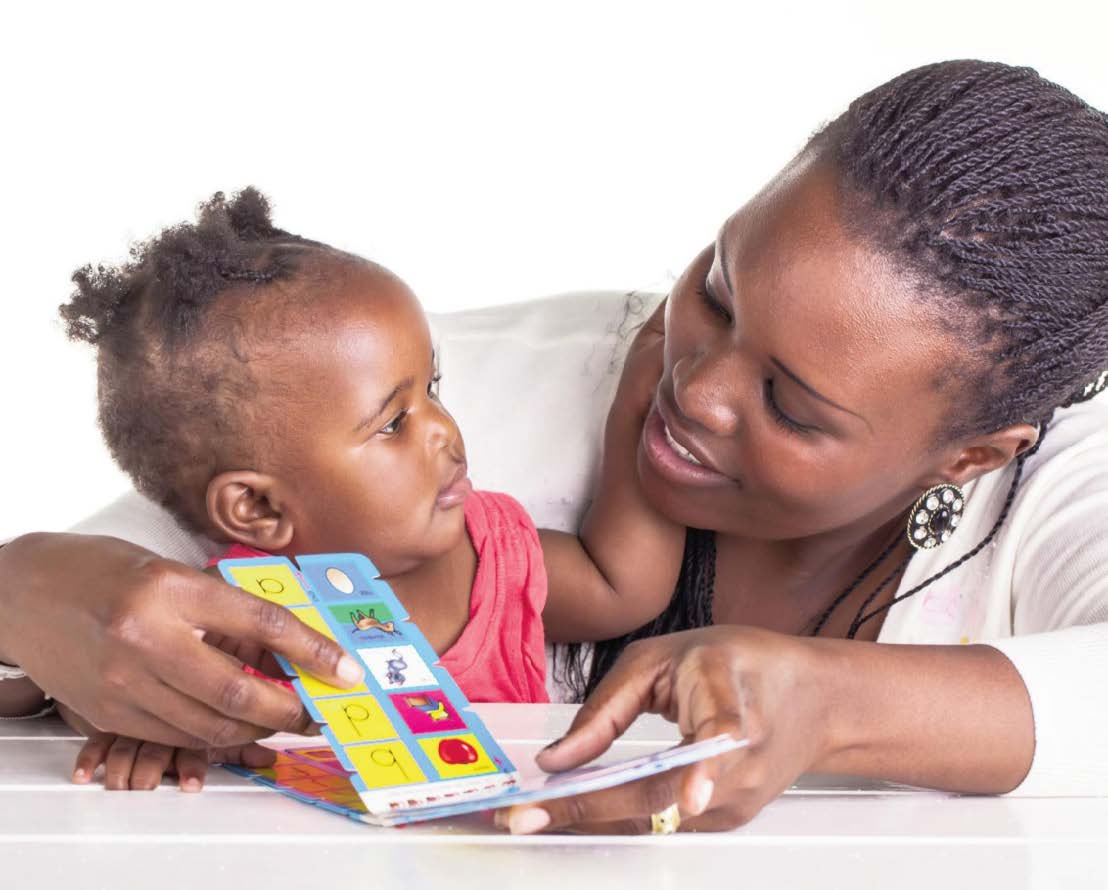WHAT TO DO IF YOUR CHILD IS DIAGNOSED WITH A RARE DISORDER

it's hard enough on family caregivers when their child receives a new diagnosis. The challenge is made even more difficult when the condition is rare. "Rare disorders" are conditions that are rare or unusual, affecting small numbers of children. This could make it even more challenging to find information from good sources. Genetic resources may also be helpful in gathering information on rare diseases, particularly to help determine whether there is a likelihood of the condition recurring within a family with future children. Families may worry about finances in addition to their child's health. Providers will also need the most up-to-date information on rare disorders. Parents of children with rare disorders will need family support, just like other parents of children with special needs, but that parent-to-parent support may not be as easy to find. Children and youth may also have questions about what the rare disorder means for them.
PARENTS OF CHILDREN WITH RARE DISORDERS WILL NEED FAMILY SUPPORT, JUST LIKE OTHER PARENTS OF CHILDREN WITH SPECIAL NEEDS, BUT THAT PARENT-TO-PARENT SUPPORT MAY NOT BE AS EASY TO FIND. WHERE DO YOU FIND RELIABLE INFORMATION AND FAMILY SUPPORT?

BY THE NUMBERS: According to The National Organization for Rare Disorders, although each individual rare disease affects no more than 200,000 people, rare diseases in the aggregate affect approximately one in 10 Americans. 10% of the U.S. population means that 30 million people are affected by rare disorders.
What are disorders?
Rare disorders affect only a small number of individuals per disorder. In the United States, a rare disease is defined as a condition that affects fewer than 200,000 people. There may be as many as 7,000 rare diseases. The total number of Americans living with a rare disease is estimated at between 25-30 million. So while individual diseases may be rare, the total number of people with a rare disease is large. Because of the rarity of a specific condition, it may seem daunting for family caregivers to try to find information, but there are reliable resources that can help.
Where is Reputable information available?
If parents find out that their child has an unusual condition, there is good information available from the National Institutes of Health (NIH) in English and Spanish. The NIH has a Genetic and Rare Diseases Information Center (GARD) which lists specific diseases. Their information specialists will provide medical information in easy-to-understand language, explain genetic testing, and list organizations that support families. There are also guides on how to find specialists, financial help, research, and tips for those without a definitive diagnosis. This information can be found at rarediseases.info.nih.gov/guides/pages/96/patients-families-and-friends or in Spanish at rarediseases.info.nih.gov/espanol.
The National Organization for Rare Disorders (NORD) has a searchable database of conditions. NORD also has family guides on rare disease, undiagnosed patients, patient assistance and other financial help, and connecting with others dealing with the same condition. The link for families is found at rarediseases.org/for-patients-and-families
For chromosomal disorders, there are descriptions of genetic testing and conditions available from Unique. There is an introduction of what chromosomal/genetic disorders are at rarechromo.org/html/ChromosomesAndDisorders.asp. There is also a guide of chromosomal disorders in English at rarechromo.org/html/DisorderGuides.asp and translations in multiple languages are found at rarechromo.org/html/DisorderGuidesTranslations.asp. Lastly, there is a section on the website homepage to connect with other families by clicking on "join us."
Rare disorders may be genetic
There are many good resources available and parents may feel relieved if the child's symptoms finally "have a name." If it does turn out to be a genetic condition, other resources (besides Unique listed above) can be helpful:
A resource that explains the basics of what genetics means for families is Genes in Life. This website explains that learning about genetics can help families understand the individual's health and help them make good health decisions. It explains what happens when genes don't work correctly and how this results in a rare disorder. There is also an explanation of the importance of family health history. This information is found at genesinlife.org/genetics-101/why-learn-about-genetics There is also a section on what to do after the diagnosis, talking to other family members, and finding support at genesinlife.org/after-diagnosis/find-information-and-support. The Genetic Alliance has a range resources, including "Children and Youth with Special Healthcare Needs in Healthy People 2020: A Consumer Perspective" found at geneticalliance.org/publications/healthypeople. The Genetic Alliance also has a disease database link at diseaseinfosearch.org A family health history toolkit is available at geneticalliance.org/publications. There is also an advocacy section on policy issues such as orphan medications (prescriptions for rare diseases), for families as well as advocacy groups at geneticalliance.org/advocacy .

THE MORE YOU KNOW: Parents of children with rare disorders need reliable information. By finding out about their child's condition, they won't feel so helpless or hopeless; it will also help them to find emotional and family support.
A complex dilemma occurs when a child with a disability needs an organ transplant. There should not be discrimination based on disability. The Boggs Center, New Jersey's University Center of Excellence on Developmental Disabilities (UCEDD), has developed a guide regarding children with developmental or other disabilities who need transplants. This guide contains information on how to prepare the child for surgery, how to tell if a nonverbal child is in pain, advocating for your child and getting a second opinion if needed, as well as transplant information (see Resources).
The Human Genome Project has opened new doors in genetics. There is a genetic blood test called an SNP array (single nucleotide polymorphism) that can be used for the child and parents. The SNP array determines if there are duplications, reversals, or deletions of chromosomes per the sidebar chart. This means that there can be chromosomal changes in which pieces are extra, missing, or "misplaced." This way families can find out if there is a genetic predisposition to having another child with the same condition or if it is "de novo," i.e., a new genetic combination and not likely to recur with subsequent children.
Why newborn screening is essential
Each state has its own list of tests performed for newborn screening. It is done with a simple "heel prick" blood test in the hospital. It is important for families to understand that this is a screening only and if the provider is concerned there may be follow-up with additional testing. This allows a condition to be identified and treated earlier with better results. Baby's First Test has information for families explaining newborn screening. There is information on living with the condition including insurance issues, how to find a specialist, and connecting with other parents at babysfirsttest.org/newborn-screening/living-with-conditions.
Explaining the diagnosis to families of children with rare disorders
Parents often remember that it's not what the doctor says, but how it is said that has a great impact. Providers may need to tell families the news that their child has a diagnosis of a disability or special healthcare need. Again, parents may not understand that a screening only tests for the possibility of a condition. Then if warranted, more diagnostic testing is performed for a particular diagnosis. Families should be encouraged to bring their concerns to their provider as parents are often the first to notice delays in reaching milestones. When a provider has to present news, parents may need both emotional support and condition specific information. Families need to know more than just the name of the condition, but also where to find accurate information. Many times, the not knowing is worse for parents. Providers may refer families to early intervention as appropriate. The children themselves may ask questions. It should be explained that the diagnosis should not define the child or hopes. Providers can help families find information and support. If parents know what to expect, they can take better care of the child resulting in better outcomes.
Information to help families members and children understand the condition
There is great information available to help children understand their condition. This is also helpful when trying to explain to grandparents and other family members, as it is in family-friendly language rather than "medical-ese." Kids Health has information on genetics, what it is, and discusses a family tree as it relates to family health history at kidshealth.org/en/parents/about-genetics.html. At the bottom of the parent page are links for children and teens on genetics to explain it to them at a level they can understand. There is also an explanation of newborn screening at kidshealth.org/en/parents/newborn-screening-tests.html which explains the process including types of tests, and lists conditions. The NIH (National Institutes of Health) has the Genetics Home Reference in family friendly language. There is information on genetics at ghr.nlm.nih.gov/gene and specific genetic conditions at ghr.nlm.nih.gov/condition. Lastly there is Rare Connect which links families with the same condition worldwide at rareconnect.org/en
Funding for families of children with rare disorders
There are many organizations available to help parents with financial issues related to rare diseases. These include:
• The Assistance Fund helps cover FDA (Food and Drug Administration) approved medications and is found at tafcares.org/patients
• Good Days offers help with medications and travel at mygooddays.org/apply
• Patient Advocate Foundation helps with copay assistance and insurance appeals and is found at patientadvocate.org/help.php
• NORD (National Organization on Rare Disorders) has a Patient Assistance Program which helps with insurance premiums, copays, medications, and diagnostic testing at rarediseases.org/for-patients-and-families/help-access-medications/patient- assistance-programs-2/.
As these pertain to rare disorders, please also see the article in this issue regarding educational and medical funding for all children with special needs.
Suppot for families is needed
Sometimes family caregivers need to talk to another parent "who has been there." Many of the disability specific organizations may have support groups or match parents. An excellent resource that matches trained volunteer parents to families of children with the same or similar condition, including rare disorders, is Parentto-Parent (see Resources). Parent-to-Parent provides emotional and informational support for families who have children with special needs. The Parent-to-Parent program gives families the skills and support they need to help their children with special needs reach their full potential and to help them feel less isolated and more confident about themselves.
Other resources to help families navigate systems are Parent Training and Information Centers (PTIs) and Community Parent Resource Centers (CPRCs) for early intervention, special education, and transition to adult life, and Family to Family Health Information Centers (F2Fs), for healthcare and health coverage. (See resources).
Genetic counselors may be concerned that families wouldn't want to know their child had genetic disorder. But family caregivers won't feel so confused or not know what to do if they find out information on their child's condition and learn how to handle it. Families may find that their child's "laundry list of symptoms" now makes sense. The specific genetic condition determination will inform providers and families on treatment options. If parents know what to expect, they can take better care of their child, resulting in better health outcomes for their child.
In summary, parents of children with rare disorders need reliable information. By finding out about their child's condition, they won't feel so helpless or hopeless. It will also help them to find emotional and family support. This will enable them to get the best treatment and services for their child. •